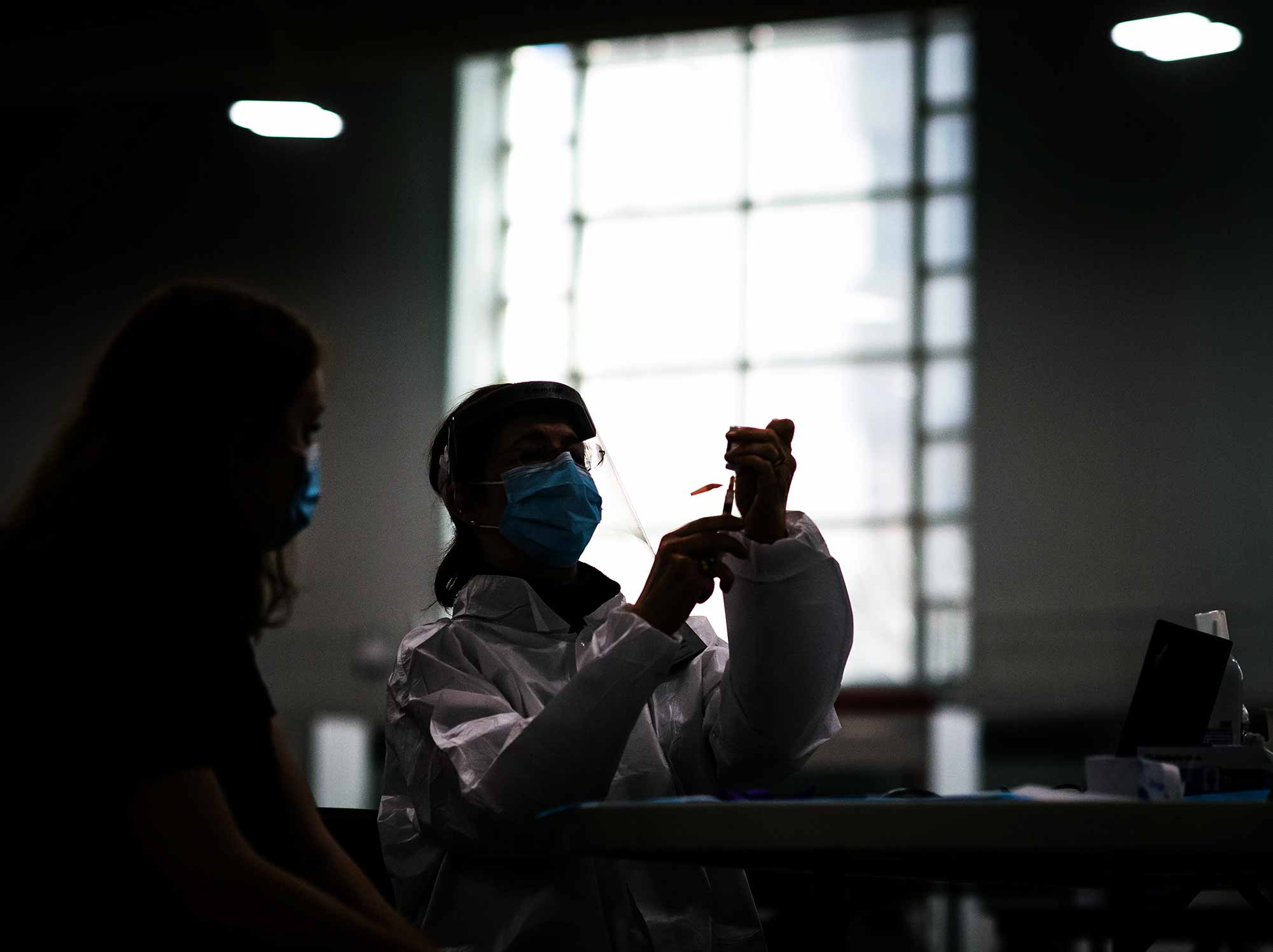WBUR Ramps Up COVID Coverage as Vaccine Rollout Increases

Anne Patey, BU Student Health Services director of nursing, preparing to give a patient COVID-19 vaccine on January 15. Photo by Jackie Ricciardi
WBUR Ramps Up COVID Coverage as Vaccine Rollout Increases
BU’s NPR station plans more interaction with readers and listeners, virtual town halls, and special newsletters
WBUR, Boston’s National Public Radio news station, is ramping up its coverage of COVID-19 and the rollout of coronavirus vaccines, with more opportunities to answer questions from readers and listeners, special newsletters, and a look ahead to what post-pandemic life might look like. (Sign up for the newsletters here.)
The station (Boston University owns WBUR’s broadcast license) has already launched a weekly email written by station digital producer Roberto Scalese and including aggregated stories from WBUR, NPR, and other media—local and national. In each email, CommonHealth reporters also answer questions about vaccines (see the archive of all their responses here).
In addition to its current weekly coronavirus newsletter, WBUR is set to launch at least three special edition emails that will focus exclusively on vaccines. Their focus will be mostly on side effects and the safety of the vaccines, clinical trials and protection, local distribution plans, and what a post-pandemic future could look like. (These special emails will be translated to Spanish by Boston’s Latino daily El Planeta.)
“WBUR’s audience has been highly dependent on our coverage in this time of crisis,” says Dan Mauzy, executive editor of news. “As the virus peaked in Massachusetts, nearly 475,000 listeners tuned in and nearly 1.4 million relied on our website for information. Our plan is to use every tool we have to get this vital, timely information to the public.”
In addition to the newsletters, the station is holding a series of free virtual town halls, Tuesdays at 6 pm, moderated by WBUR journalists, with medical experts from around the country:
- February 23: The Success and Challenges of Vaccine Distribution
- March 2: Ethics and the Vaccine
- March 9: Fact Up! Your Vaccine Questions Answered (featuring health reporter Angus Chen, with Charles Anderson, president and CEO of the Dimock Center medical complex, and Sabrina Assoumou, a BU School of Medicine assistant professor of medicine and an infectious diseases physician at Boston Medical Center, BU’s teaching hospital)
The goal for WBUR’s public service journalism is to reach residents beyond WBUR’s and NPR’s traditional audience. “It’s easy to feel hopeless during the pandemic, like there’s very little you can do to make a difference, but I really think education and awareness is so important,” says WBUR newsletter editor Meagan McGinnes. “One way you can do your part is to help make sure everyone has access to reliable news and information. I think our free newsletter can be that resource for people.”
Comments & Discussion
Boston University moderates comments to facilitate an informed, substantive, civil conversation. Abusive, profane, self-promotional, misleading, incoherent or off-topic comments will be rejected. Moderators are staffed during regular business hours (EST) and can only accept comments written in English. Statistics or facts must include a citation or a link to the citation.